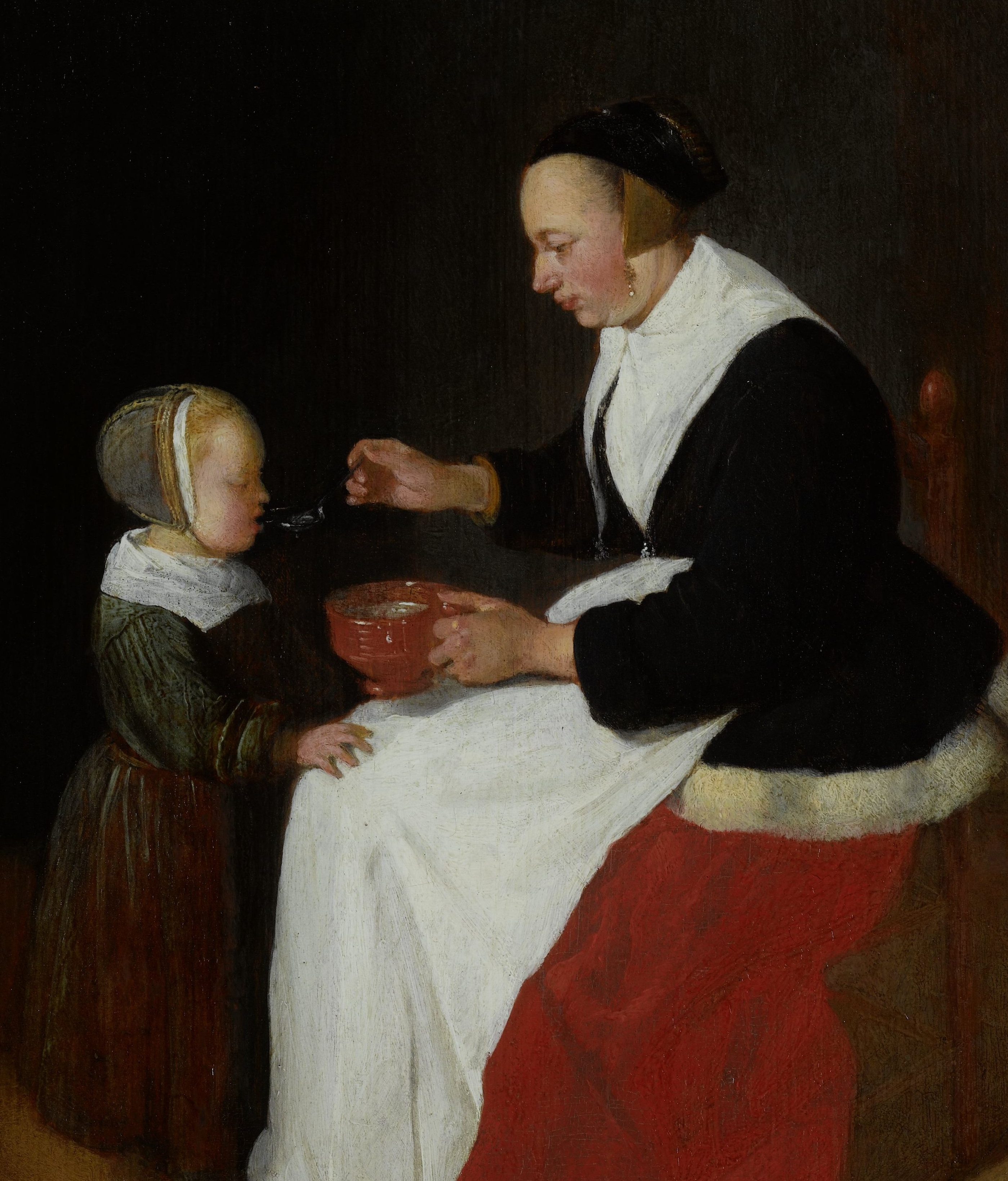
Mothers’ Worries over the Spiritual and Bodily Health of their Sons.
Dr Sara Read
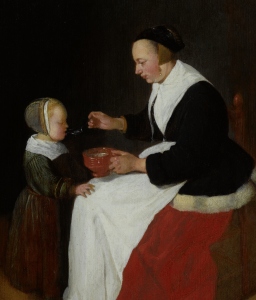 In the seventeenth century it was common for high-ranking boys to be sent to study at the universities of Oxford or Cambridge from the age of around fourteen. As gentlemen, they often didn’t graduate – obtaining a degree wasn’t the prime objective, receiving a high quality education was. Some historians, such as Lawrence Stone, viewed the practice of children leaving home at this young age, coupled with the high mortality rates, as evidence that parents didn’t feel the same love for their offspring that modern parents do.1 This interpretation of early modern parenting has now been widely rebuffed using the wealth of evidence from family letters and journals which survive and describe the overwhelming grief parents often felt at the loss of a child. Similarly, despite the fact that it was entirely normal for the upper ranks to send their children away to be raised in other households, the evidence from the letters of mothers whose sons were studying at university shows how much they worried after their sons’ health while they were away.
In the seventeenth century it was common for high-ranking boys to be sent to study at the universities of Oxford or Cambridge from the age of around fourteen. As gentlemen, they often didn’t graduate – obtaining a degree wasn’t the prime objective, receiving a high quality education was. Some historians, such as Lawrence Stone, viewed the practice of children leaving home at this young age, coupled with the high mortality rates, as evidence that parents didn’t feel the same love for their offspring that modern parents do.1 This interpretation of early modern parenting has now been widely rebuffed using the wealth of evidence from family letters and journals which survive and describe the overwhelming grief parents often felt at the loss of a child. Similarly, despite the fact that it was entirely normal for the upper ranks to send their children away to be raised in other households, the evidence from the letters of mothers whose sons were studying at university shows how much they worried after their sons’ health while they were away.
In around 1620 Alice, Lady Hatton (nee Fanshawe) wrote to her son Christopher (b. c.1605), who was studying at Jesus College, Cambridge, saying:
You must knowe frome me that, if I did not strive som times against the fond affections of a mother, I should send oftner for you then you whould be willing to com, if you love your one good, as I hope you doe. I am now in hast, and yeat I must put you in minde of your chiefe dutie, which is to God, which I charge you not to neglect, but to dedicate your first thoughts to Him constantly; read His worde reverently; heare sermons; strive to take notes that you can meditate on them, without which you can never practise, which is the onely end for which you were created, to knowe God’s will and to indever to doe it. What panes soever you take hearin, it will vannis, and profit will remaine with you. It is contrarie in fruitless pleasures, the seetnes whereof is quicly gon, the sorrow lonely stayes. Idlenes is much like or wours, which I wish you to avoyde, even for your health sake, but especially because it is a sinn, and that not a lickle one, it being the cause of many others. Thus, desiring God of His greate goodness to bless you and all your studies and indevers, I rest
Your verie loving mother,
Ales Hatton.2
The key aspect of the maternal message here is that worshiping God was essential for her son’s physical, intellectual, and spiritual growth. She cautioned Christopher against the sin of idleness which would have a detrimental effect on the boy’s physical body as well as adversely affecting the health of his soul.
For many in the seventeenth century, bodily health and spiritual health were totally interdependent. One could only be healthy if the other was. The author of the preface to Hannah Allen’s 1683 conversion narrative makes this clear:
The Soul of Man hath a singular affection for its own Body, rejoycing in its Prosperity, and sympathising with it in all its Maladies, Miseries, and Necessities. Hence if the Body be out of frame and tune, the Soul cannot be well at ease. As the most skilful Musician cannot make any pleasing melody upon an unstringed or broken Instrument.3
A broken (or sick) body, then, was thought to limit a person’s ability to pray effectively. After all, the physical body was God-given so it was incumbent upon a person to respect and maintain it in the best order as an outward display of piety. As the preface writer made clear, ‘the blood and humours are the Souls Organs, by which it doth exert its actions.’
A mother’s concern about the spiritual and bodily health of a son at university is also demonstrated in a letter from Brilliana, Lady Harley to her eldest son Edward (b. October 1624), sent in December 1638 while he was studying at Magdalen Hall, Oxford. Harley worried over a kidney problem she was concerned Ned might be suffering from. She wrote, ‘Dear Ned, be careful to use exercise; and for that pain in your back, it may be caused by some indisposition of the kidneys. I would have you drink in the morning beer boiled with liquorice; it is a most excellent thing for kidneys’.3 While her advice here is purely practical, earlier in the letter Harley had warned Ned to be ‘still watchful over yourself, that custom in seeing and hearing of vice do not abate your distaste of it. I bless my God, for those good desires you have, and the comfort you find in the serving of God’.
These letters demonstrate the importance in these times for maintaining bodily and spiritual health in equal measure. For bodily health a mother would rely on a range of herbal medicinal cures, diet, sleep, and exercise recommendations –the non-natural aspects of health in the Hippocratic taxonomy- and for spiritual health, she would prescribe prayer and abstemiousness around the temptations that the freedom of being away from home at such young age offered. While my worries about the health of my own son when he went off to university at eighteen weren’t based on spiritual concerns, the idea that he might not be eating well or sleeping enough, just like the views of the mothers here, are ones which mean the seventeenth-century letters strike a chord with me too.

_______________________________
1 See for example, Laurence Stone, The Family, Sex and Marriage in England 1500-1800 (1977), p. 114.
2 E. M.Thompson, ed. Correspondence of the Family of Hatton, Chiefly Letters Addressed to Christopher First Viscount Hatton, A.d. 1601-1704 (London: Camden Soc., 1878-9), pp. 3-4.
3 Anonymous, A Narrative of God’s Gracious Dealings with that Choice Christian, Mrs. Hannah Allen (London, 1683), pp. i-ii.
4 Rachel Adcock, Sara Read, and Anna Warzycha, eds., Flesh and Spirit: An Anthology of Seventeenth-century Women’s Writing (Manchester: MUP, forthcoming)
© Copyright Sara Read, all rights reserved.

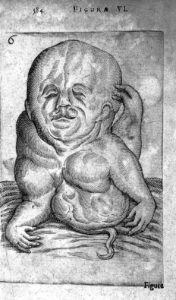
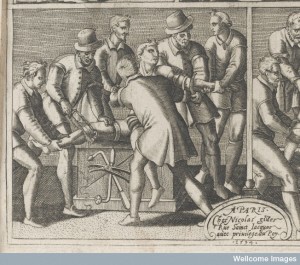
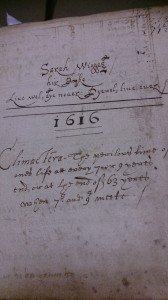

Hatton had just inherited his father’s estate. Does that affect Lady Alice’s concerns, about idleness perhaps?
The Harleys were notable Puritans, regionally dominant. How does that affect the tone of Brilliana’s advice?
Sorry David. I have only just seen your reply. Harley’s Puritanism is absolutely at the heart if her advice. She is worried sick about her son being exposed to the temptations of the new environment and the potential for Ned to forget himself. Her letters bring this up time and again. She also made sure Ned had an approved tutor who would keep him on the straight and narrow.
The letters that Harley sends her son are some of the most remarkable I have read. They are clearly extremely close and she talks to him with a frankness not often seen. Both Hatton and Harley are mindful of the fact that their sons are being trained as heirs to their fathers and both write that they have to suppress their natural urges to call their sons home when they are missing them dreadfully. They believe that being at university is the best training for them but the tension between doing the right thing and a mother’s need to be physically near her young son comes through in both women’s letters.
Sara
“Puritan” is an imprecise term. The Harleys certainly promoted a more eager version of Calvinism than some of Charles I’s bishops cared for, but theirs had been the dominant position during the reign of James VI & I.
“Puritan” suggests that they were some sort of radicals. They threw in theit lot with the Presbyterian peace party. They were orthodox Calvinists rather than “Puritans”.
Any umbrella term lacks precision, but I don’t think it is the case that Puritanism automatically connotes extremism. Indeed Harley’s husband, Sir Robert described himself in a letter as a Puritan. He was one of the few people to use the term in a positive sense at a time when it was often used as a term of derision.
I didn’t know that Harley did that, but it was indeed a rare self-description. I don’t think that “Puritans” were extreme in their views, for the most part, unlike some of the 1650s sectaries.
In 1604, Bishop Hutton described the Puritans as simply differing in the matter of zeal.
As for umbrella terms, how precise one needs to be depends on what one is trying to explain. “Protestant” is notably useless, in many contexts, but I can think of one historian of early modern English medicine who uses “Christian,” as a supposed contrast to “Hippocratic.”
A point about beng sent to Oxford at a relatively early age. It occurs to me that this required a good familarity with written and spoken Latin at this date. Everything apart from conversation was done in Latin.
This therefore would require either a first-rate private tutor or very good schooling, Westminster School under William Camden and Richard Busby being an obvious example. George Herbert went up to Trinity, Cambridge, at 16. However, famous pupils with poor parents, such as Jonson and Hooke, did not attend university (Hooke eventually went up as Boyle’s assistant), and famous pupils who were less poor, such as Wren, Locke and Dryden, went up at the conventional age.
Even a moderately prosperous student might need a scholarship in order to avoid having to act as a fellow’s servant, as Willis did. In the late 18th century, Malthus was forever asking his reluctant father for more money, in order to maintain his status as a gentleman commoner.